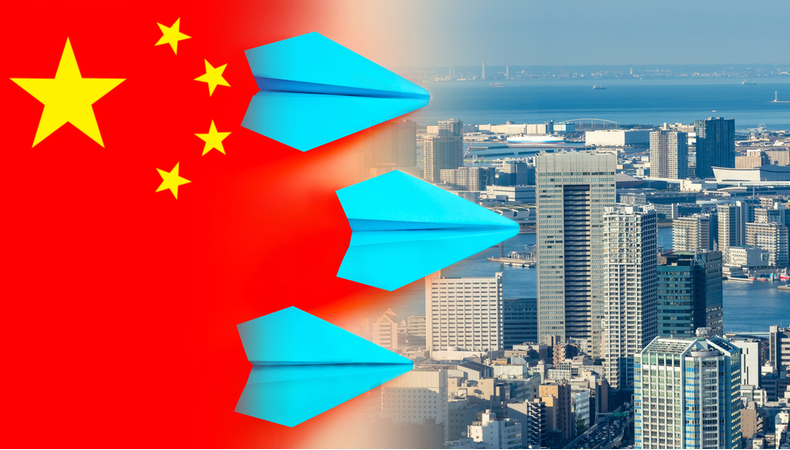From Iran to Turkey, the influence of China in the Arab world

With a ceremony broadcast live on national television, last Saturday in Tehran Iran and China signed a strategic cooperation agreement – economic and security – for 25 years, which gives breath to the Islamic Republic isolated by international sanctions and strengthens the already growing Chinese influence in the Middle East, at a time of stalemate in negotiations with the United States for a return to the nuclear deal.
“A friend for hard times”, Iranian Foreign Minister Javad Zarif said, addressing his Chinese counterpart, Wang Yi, after the signing of the agreement. For Iran, the pact with China is oxygen. Beijing supports the Iranian economy burdened by sanctions and the economic crisis, it is the country’s first trading partner and its first oil buyer: in the last 14 months, about 300,000 barrels a day have departed from Tehran for Chinese ports, according to Refinitiv Oil Research. 75% of these supplies arrived in China as indirect imports, crude oil from Oman, the United Arab Emirates, or Malaysia to circumvent US sanctions.
And although critical voices have been raised in Tehran about an agreement that risks strengthening dependence on China and weighing on possible future negotiations with the United States, the agreement was supported by the conservatives and the supreme leader, Ali Khamenei, who in recent months has entrusted the dialogue with Beijing to Ali Larijani, a powerful former speaker of Parliament and one of the possible candidates in the presidential elections in June. The details of the memorandum have not been disclosed, it remains to be seen which projects will be implemented. In the past, there have already been delays and setbacks. But the agreement has undoubted political value.
There is an ongoing “earthquake movement in the region and it does not concern only Iran. Very similar agreements with China have been signed by several countries, the Gulf is looking to the East”, says Jacopo Scita, an analyst at the School of Government and International Affairs of Durham University. The partial American disengagement has opened new spaces that Beijing occupies with what the scholar Degang Sun calls “partnership diplomacy”: not alliances on the model of NATO, which also imply military intervention agreements in defense of a friendly state, but economic pacts and politicians who allow them not to be involved in regional disputes.
Read more : China and Iran sign a 25-year cooperation agreement
Wang Yi arrived in Tehran after making stops in Saudi Arabia and Turkey, and before flying to the United Arab Emirates, Oman, Bahrain, a week after the decision by Antony Blinken, the US secretary of state, to make his first visit overseas to Japan and South Korea. If Washington looks to Asia to contain Chinese ambitions, China seeks strategic depth in an area of traditional American influence.
Oil is the major carrier of Chinese interest in the Middle East, with around 38% of Chinese imports in 2020 coming from the region. But in the last ten years, and with greater intensity since 2015, China has also increased its economic commitment, today it is the first foreign direct investor: over 147 billion dollars invested in 10 years. The Gulf, for a long time a bastion of American alliances in the region, is also the privileged interlocutor of the Chinese, Emiratis and Saudis are China’s first trading partners. We are not just talking about energy or manufacturing, infrastructures, ports, agri-food. The new silk road is also digital, technological.
The Emirates are the regional hub of Huawei’s products with which they have entered into agreements for the development of 5G, as is Saudi Arabia, and this just as Europe and the United States were trying to block the Chinese tech giant considered a potential threat to security. Wang Yi’s trip also served to close another important agreement with Abu Dhabi: the Emirates will produce the Chinese anti-Covid vaccine, Sinopharm, to distribute it in the region.
China’s expansionism on digital infrastructure in the Gulf worries the United States. “China’s model of cooperation is based on economic interests, but the” supply and demand “approach, of supply and demand, creaks when it comes to 5G technologies and cybersecurity that touch on issues related to security, data protection in areas where the United States has military bases and a strategic presence.” Scita notes, adding that it seems inevitable that friction will arise with Washington on this ground.




